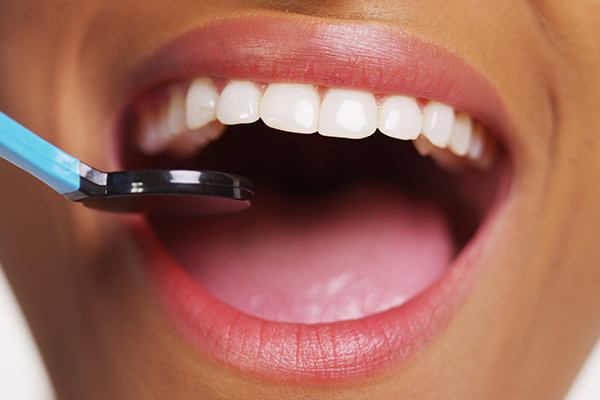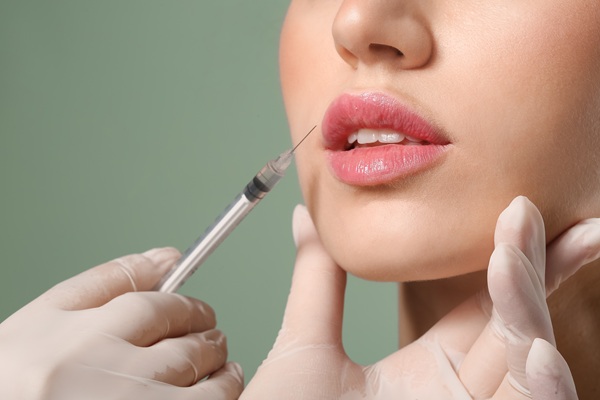FAQs About Laser Dentistry

Since laser dentistry is still relatively new, patients often have questions about the process. The use of lasers in dentistry is becoming popular because they allow precision and less-invasive treatment. To help patients understand the procedure, this article answers frequently asked questions.
What is a laser?
Dental lasers generate energy in a concentrated beam of light. The energy has different wavelengths depending on the desired effect and is absorbed by the target, which can be tooth decay, gum tissue, tooth enamel or whitening accelerators. Each material absorbs a unique wavelength of light and deflects others.
How is a dental laser different from a drill?
Dentists prefer dental lasers over drill for different reasons. The lasers used in laser dentistry are more efficient and produce faster results than a drill. It removes the need for anesthesia because patients experience less pain. Lasers can reduce bacteria levels and cause less damage to healthy tissues. The device allows for precise and safe periodontal treatment, thus ensuring faster healing time.
Is laser dentistry safe?
Laser dentistry is safe. When used according to the proper guidelines, dentists trained in the use of dental lasers can perform procedures safely. Dental lasers have been approved by the Food and Drug Administration.
What are the benefits of laser dentistry?
Lasers operate quietly without vibration or whining, a feature that might be helpful for patients with dental anxiety. Due to the minimal impact that they have on oral tissues, there is less bleeding and swelling afterward. There is also a lower risk of infection because the lasers decontaminate the affected part.
Are lasers painful?
The procedure itself is relatively painless, but the dentist may administer local anesthesia to keep the patient comfortable. There is usually slight discomfort after the treatment, but it is temporary and should stop in no time.
Heat and vibration are the major causes of the discomfort commonly associated with the dental drill. Laser dentistry sometimes uses laser energy in conjunction with air-water spray (a process known as Hydrophotonics) to complete different forms of dental procedures more comfortably. The reasons for this are that lasers cause reduced teeth sensitivity and do not generate heat and vibration.
What are the applications of laser dentistry?
Hard and soft tissue lasers are the two main types of lasers used in dentistry for procedures. Lasers can be used to remove decay from a tooth and prepare the enamel for a dental filling. The dentist can also use lasers to treat gum disease by breaking apart and removing plaque and tartar accumulation on the teeth and gums. It can also be used in cosmetic dental procedures to whiten the teeth and reshape the gums and teeth with precision.
In conclusion
The use of laser dentistry results in fewer cases of infection, a better healing process and faster recovery time. If you have additional questions about lasers and how they are used for periodontal disease treatment, contact the dental office to schedule a consultation. The dentist will let you know if it can be used as part of your treatment plan.
Request an appointment here: https://davisanddingle.com or call Davis & Dingle Family Dentistry at (803) 567-1804 for an appointment in our Columbia office.
Check out what others are saying about our services on Yelp: Read our Yelp reviews.
Recent Posts
Are you looking for a way to improve your smile with cosmetic dentistry? Botox is an innovative method that has helped many patients address issues such as a gummy smile, aging lines, and more. This review discusses how a dentist can use Botox to improve your smile long-term.Botulinum toxin A, or Botox for short, is…
Dentures are a great solution, but they do require dental adjuments over time. Patients using denture make notice that after a while the fit isn't quite what it used to be. When this happens, it can make it difficult to speak or chew properly. If you notice these changes then it's time to schedule a…
Periodic denture adjustments make life with dentures more comfortable. Regular maintenance of your dentures means making sure that they fit well, which enables you to eat, speak, and smile with ease. But living with dentures does not always live up to expectations. For starters, there is an adjustment period for first-time wearers of dentures. As…
If you have ever felt self-conscious about your teeth and considered seeing a cosmetic dentist, you are not alone. Americans spend thousands of dollars trying to enhance their smiles each year. However, for a truly transformative look that is also safe for your teeth, it is recommended that you see a cosmetic dentist.A cosmetic dentist…


